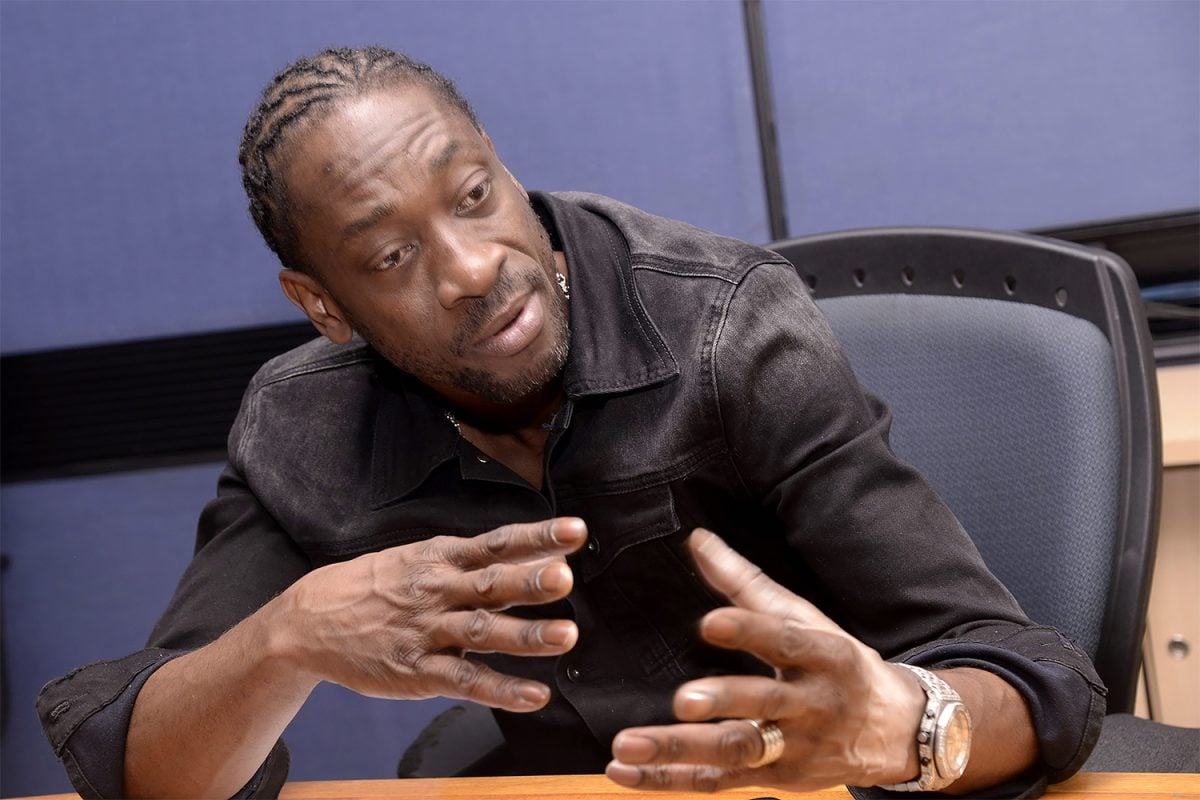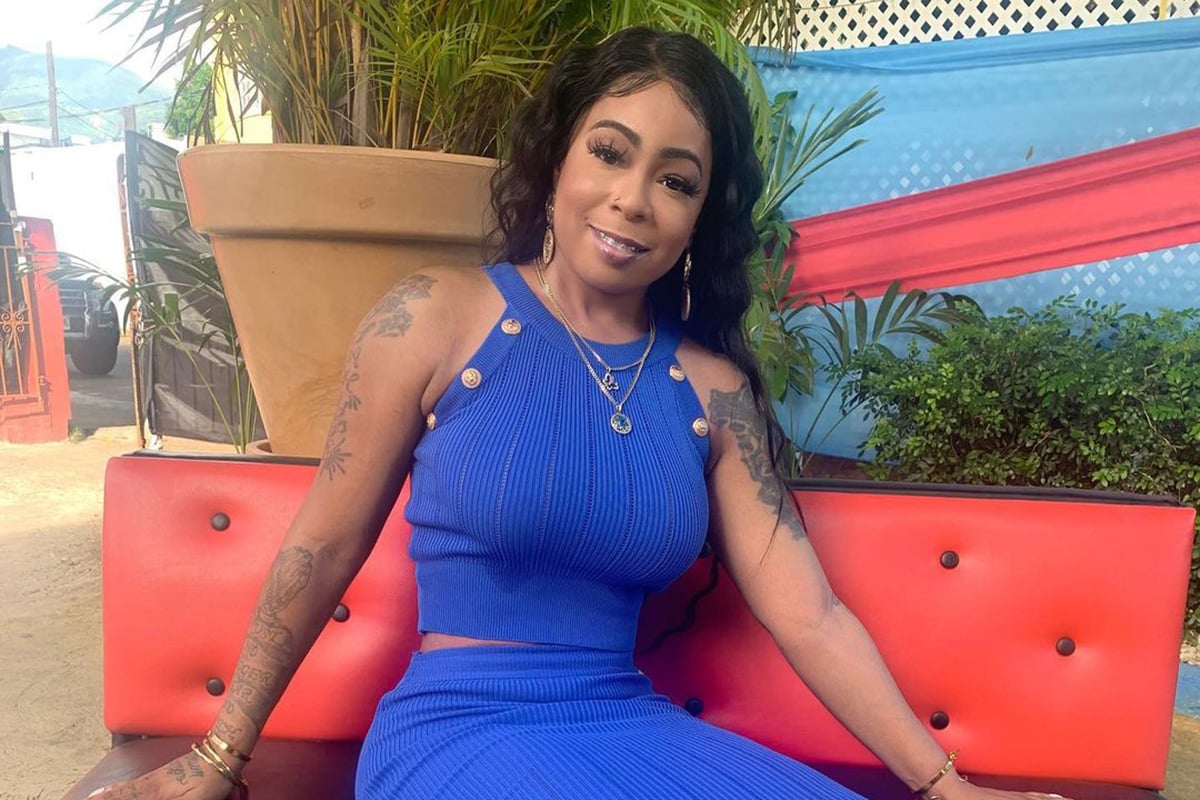Bounty Killer Says Jamaicans Need To Take Mental Health Issues Seriously

Bounty Killer has expressed worry that Jamaicans are failing to take mental health issues seriously, and says most of the island’s heinous crimes are being committed by people who are psychologically sick.
In responding to the question as to whether he thought mental health had a role in the violence in inner-city communities, Bounty said that mental health is a causal factor.
“The gruesome crimes that happening in Jamaica, we have to think mental problem involved. Di man weh kill him four niece an dem madda, dat deh man coulda sane? Dat couldn’t be a sane man,” said a bewildered Bounty in an I Never Knew TV interview, referring to Rushane Barnett, the 23-year-old man who was convicted of the gruesome murder of a Clarendon mother and her four children.
“Yeah, so I strongly believe mental problem involved in a lot of these killings and the behaviour of the people, yeah,” he added.
According to Bounty, many Jamaicans brush off mental illness, as though it is not a serious national issue.
“And then, Jamaican don’t think it’s a serious thing you know. If yuh seh ‘bwoy mi have mental problem’, dem look pan yuh an laugh enuh, cause dem can’t si di problem,” he explained.
“See, the problem, I think Jamaicans suffer a lot of mental issue yes. Even di likkle bwoy dem weh light di street man, wha kinda yute woulda do dat? Jus si di man pan di road a sleep an guh light him? Fi what?” he questioned, referring to the five juveniles who set a homeless man on fire in August last year at the National Heroes Circle in Kingston.
Experts in psychology and psychiatry have attributed the levels of violence in Jamaica, to the fact that the island has a large number of psychopaths and sociopaths.
During her contribution to the State of the Nation Debate in the Upper House In February 2020, Government senator and consultant psychiatrist Dr. Saphire Longmore, after recounting some barbaric acts of violence against children and women in Jamaica, had declared that “there are sociopaths and psychopaths among us.”
Dr. Longmore had said it was time for the Government to put funding behind mental health and also urged the Jamaica Constabulary Force to enroll the services of criminal psychologists in their investigations.
One study conducted by the late eminent psychiatrist Professor Fredrick Hickling and Dr. Geoffrey Walcott, on anti-social behaviors, titled Personality disorder in convicted Jamaican murderers , concluded that “antisocial personality disorder as an aetiological precursor of homicidal violence, represents a major public health problem in contemporary Jamaica”.
Professor Hickling had also conducted another joint study titled Population Prevalence of Personality Disorder in Jamaica , in collaboration with clinical psychologist Vanessa Paisley in 2011. That study revealed that not only are personality disorders prevalent in Jamaica, but that nearly one million adult Jamaicans suffer from personality disorders and the island’s high crime rate was linked to mental illnesses.
During the interview, Bounty also came out batting for the elderly and the infirmed, whom he says are also highly vulnerable.
“So many Jamaican people, they’re not concerned about each other like that and then disabled people and old people and mentally ill people, we don’t give them no care,” he said.
“We Jamaicans don’t think seh di strong must look out fi di weak. Each man to dem own. Only the Strong Survive. Dem nuh believe seh di weak haffi survive and a di strong haffi help di weak to survive. Das why God make you strong. I am, because you are, but a nuh all a wi look at it like dat,” the Warlord added.
Bounty Killer is the second Dancehall artist in the last few months to address the issue of mental illness in Jamaica frontally.
In November 2022, Lisa Hyper urged her compatriots to seek help, if and when, they realise that they are having mental health struggles.
The Pretty Butterfly artist had said that mental health challenges ought not to be viewed with shame, since all humans contend with it at some point in their lives. She also said that she too, had struggled with mental health issues in the past.
“Oonu seek help, especially di artiste. Becaw wi too egotistical sometime,” she had said.
Mental Health professionals from the Ministry of Health have long pointed out that while persons who have mental illnesses are often stigmatised, Jamaicans should be made aware that anyone can become a victim of such disorders, as it is simply another illness just like hypertension or diabetes.
One senior Mental Health officer had pointed out that mental illness was not just something that “runs in families”, but that a very healthy person could get into an accident, sustain a head injury, or experience or witness a traumatising or violent act, which could result in mental illness.
A 2019 Pan American Health Organization United Nations Development Programme PAHO report titled Care for Mental Health Conditions in Jamaica The Case for Investment, which evaluated the return on investment of scaling up treatment for depression, anxiety and psychosis on the island, found that the economic and social burden of mental illness is considerable.
The report called for the Jamaican Government to make investments in addressing mental health important, in order to improve quality of life “from childhood through older age”, as many mental health problems and illnesses begin in childhood or adolescence.
The report said that over time, in Jamaica, there has been a rise in the number of persons seeking treatment for mental illness with approximately 90,000 visits to public health facilities for mental health treatment annually in the years 2013 and 2014, and a 20 percent jump per year in the following two years, with nearly 108,000 visits in 2015 and 132,000 in 2016.

